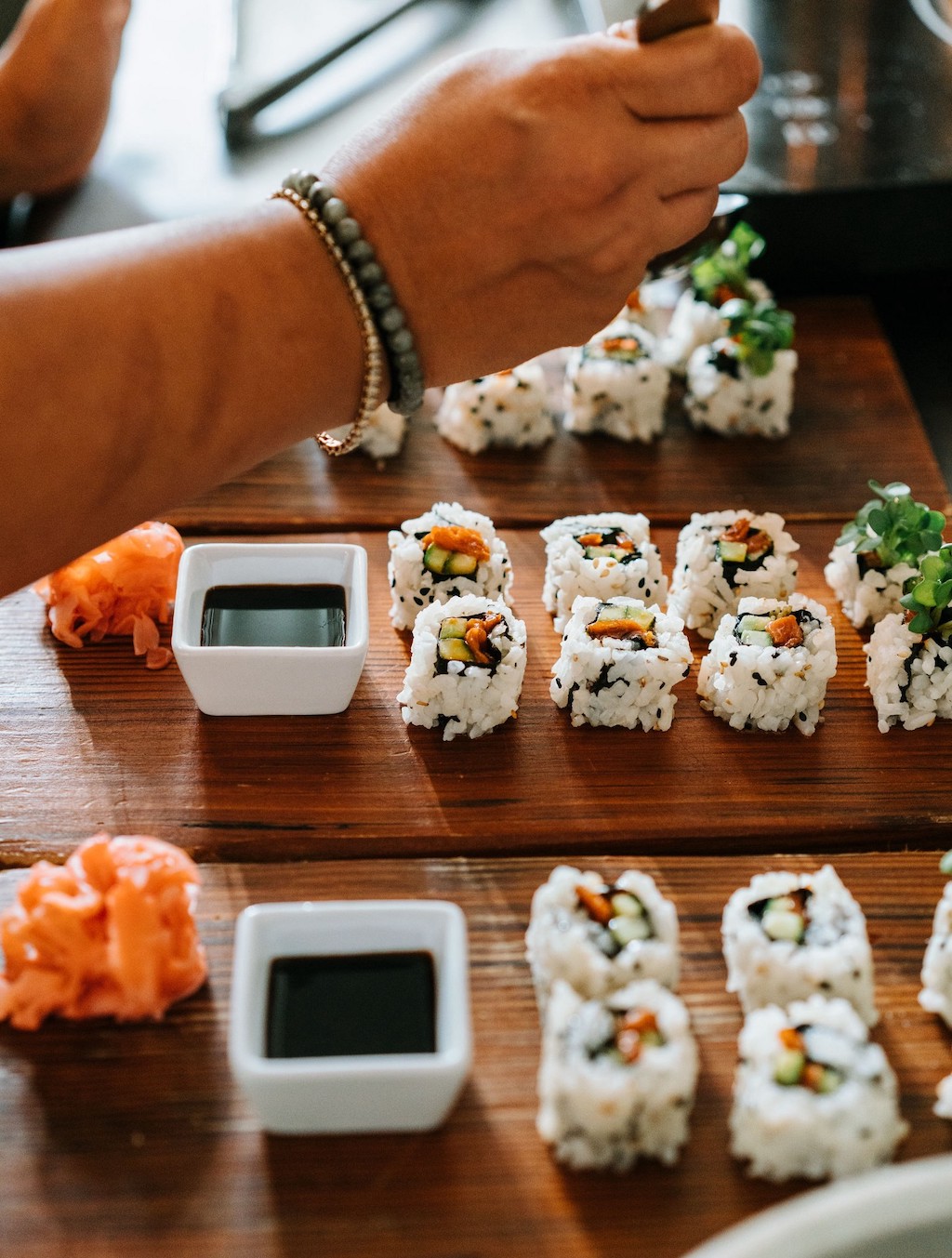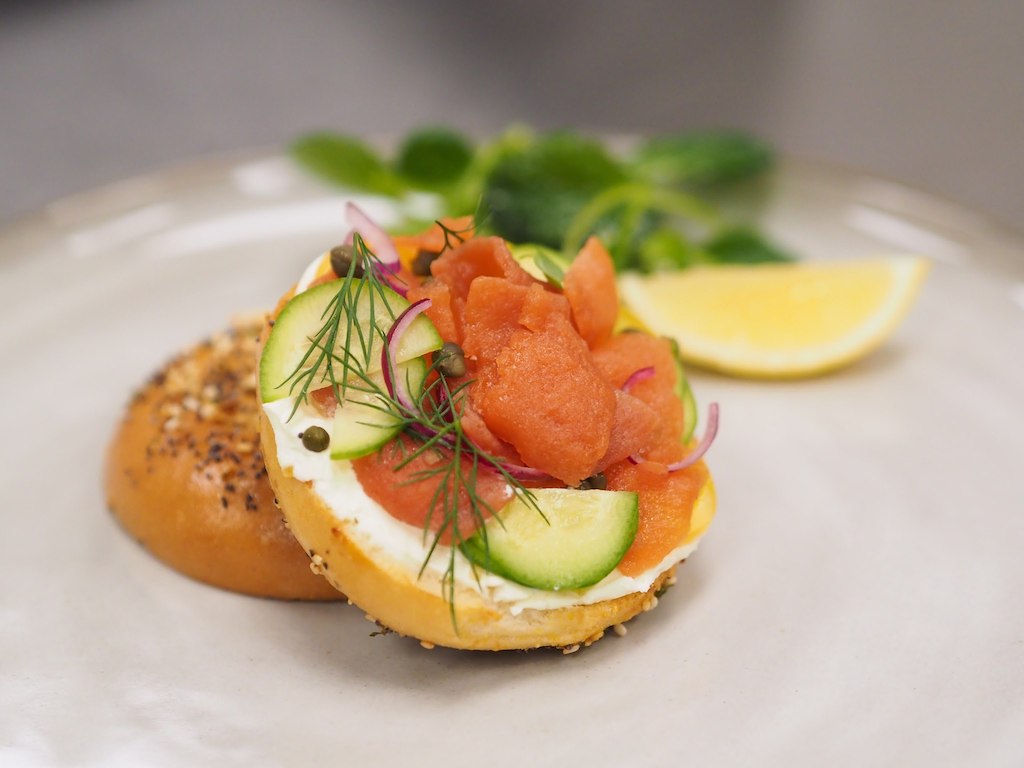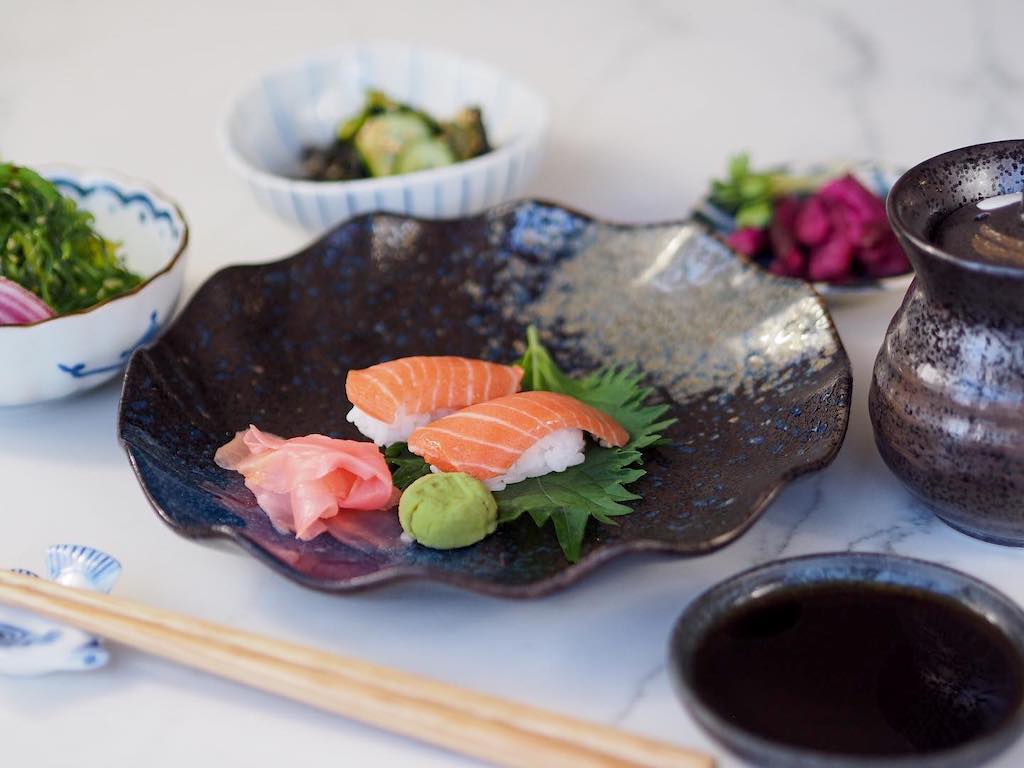3 Mins Read
Wildtype, a cell-based food tech, is starting to take pre-orders from chefs as it looks for partners to feature their cultivated sushi-grade salmon on menus. While the San Francisco-based startup is still a while away from fully launching its product, it says its releasing the news that they’ve developed the next iteration of its cruelty-free and sustainable cell-based salmon.
Founded in 2016 by Justin Kolbeck and Arye Elfenheim, Wildtype made headlines last year when it showcased its first cell-based salmon to the world. Now, revealing that they have developed the next version of its product, the startup is opening up a pre-order list for select chefs who are looking to create dishes with their new cultivated sushi-grade salmon.
Speaking to TechCrunch about the news, co-founder Kolbeck said the product is “sushi or nigiri or sashimi that you would order at a sushi restaurant.”
“Chefs will take a fish apart into saku blocks which are 10 to 14 ounces of fish. They’ll cut out bits that go on nigiri and the bits that are left over are made into rolls. We’ve designed an initial product release that can serve all three of those form factors.”

Wildtype uses its own proprietary technology to create the scaffolding for the muscle tissue and fats to grow on in order to achieve the same taste and texture of conventional wild-caught salmon. The cell lines and nutrients used are developed by the food tech themselves, as well as the cultivators that the cells have to grow in.
We’ve designed an initial product release that can serve all three of those form factors.
Justin Kolbeck, Co-Founder of Wildtype
“What we’ve created is special in its ability to provide cells with the right signals to organize and mature,” co-founder Elfenbein told the publication. “We basically create a scaffold that provides the right guidance in different places for cells to take up fats in different places or become more striated.”
The founders made clear that this isn’t the full launch of its product and the company is still years out from commercialisation. However, it is actively looking for restaurant partners who want to trial and taste their cultivated salmon, especially in the wake of the coronavirus, which has seen consumer awareness of food safety, health and sustainability reach an all time high.
The traditional seafood industry has been mired by not only its enormous environmental footprint, from plastic pollution to carbon emissions, but also rising health concerns over microplastic contamination, the spread of aquaculture diseases and parasites, not to mention a long history of human rights abuses across the industry’s supply chains.

What we’ve created is special in its ability to provide cells with the right signals to organize and mature. We basically create a scaffold that provides the right guidance in different places for cells to take up fats in different places or become more striated.
Arye Elfenheim, Co-Founder of Wildtype
While Wildtype is focused on culturing sushi-grade salmon, other food techs are focused on creating other types of seafood in high demand, especially in Asia. Hong Kong’s Avant Meats, for instance, is developing cell-based fish maw, a traditional Chinese delicacy, and Singapore-based Shiok Meats is working on cultivated shrimp.
Outside of the cultivated protein sector, plant-based food techs have already been launching seafood alternatives to great fanfare. Driven by rising demand, Good Catch Foods has recently opened up its new 42,500 square foot facility dedicated to producing vegan-friendly tuna. Food giant Nestlé has also jumped on board, debuting its first plant-based tuna product last month.
However, few startups are working on sushi-grade fish, apart from Kuleana. Like Wildtype, Kuleana is based in San Francisco, but where they differentiate is their use of only 100% plant-based ingredients such as algae and plant fibres to create their vegan-friendly cuts of seafood, with their first product being bluefin tuna.
All images courtesy of Wildtype.




